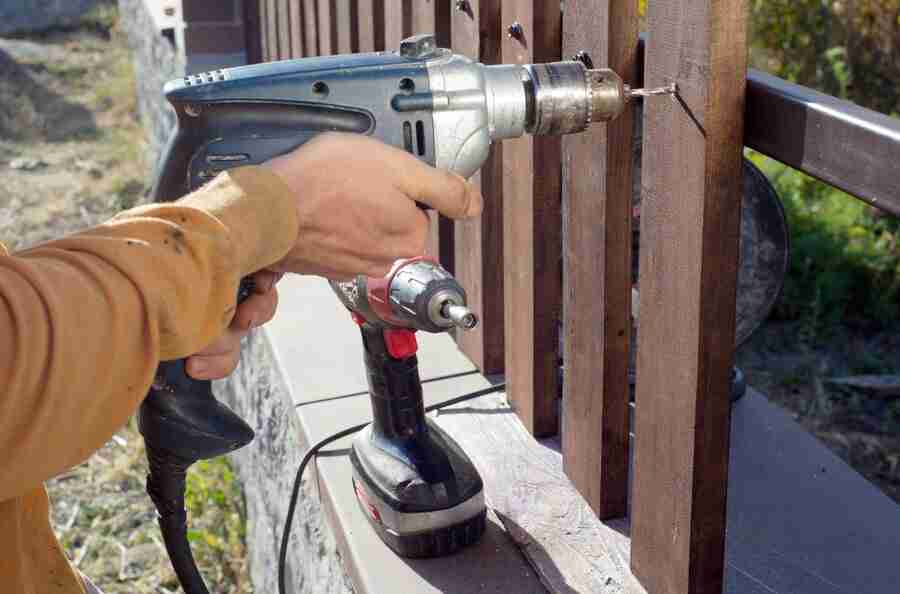
When it comes to enhancing the aesthetics, security, and overall value of your property, few investments are as impactful as a well-constructed fence. Whether you’re aiming to create a private oasis in your backyard, secure your premises, or simply elevate your curb appeal, choosing the right fence contractor is a crucial step in achieving your goals. The process may seem daunting with the plethora of options and contractors available, but fear not – our comprehensive how-to guide is here to walk you through the essential steps.
In this blog, we’ll delve into the intricacies of selecting a fence contractor that not only meets your specific needs but also delivers quality craftsmanship. From assessing your fencing requirements and conducting thorough research to interviewing potential contractors and finalizing agreements, we’ll cover each step of the journey. Making an informed decision requires a strategic approach, and by the end of this guide, you’ll be equipped with the knowledge and confidence needed to choose a fence contractor that aligns seamlessly with your vision.
So, whether you’re embarking on a new landscaping project or looking to upgrade your existing fencing, join us on this exploration of how to navigate the process of selecting the perfect fence contractor for your needs. Your property’s transformation begins with the right choice, and we’re here to guide you every step of the way.
Assessing Your Fencing Needs
Assessing your fencing needs is a crucial step in the process of choosing the right fence contractor. This stage involves a thoughtful examination of various factors to determine the purpose, type, and budget for your fencing project.
First and foremost, identify the primary purpose of the fence. Is it for security, privacy, aesthetics, or a combination of these? Understanding the main goal will guide you in selecting the appropriate materials and design. For instance, if security is the priority, a sturdy metal or chain-link fence might be preferable, whereas for privacy, a tall wooden or vinyl fence may be more suitable.
Next, consider the preferred material for your fence. Each material has its own set of advantages and considerations. Wood offers a natural and classic look but requires regular maintenance, while vinyl is low-maintenance and durable. Metal fences, on the other hand, provide security and longevity.
Establishing a budget is equally important during the assessment phase. Determining how much you are willing to invest in your fencing project helps narrow down the options and ensures that you choose a solution that aligns with your financial constraints.
By thoroughly assessing your fencing needs, you set the foundation for a successful collaboration with a fence contractor. Clear objectives and a well-defined budget will enable you to communicate effectively with potential contractors and ensure that the end result meets your expectations.
Researching Potential Fence Contractors
Researching potential fence contractors is a crucial step in ensuring a successful and satisfactory fencing project. The quality of the contractor you choose directly influences the outcome of your fence in terms of durability, aesthetics, and overall value for your investment.
To begin the research process, leverage online resources and platforms. Websites like Yelp and Google Reviews offer insights into the experiences of previous clients. Reading reviews can provide valuable information about a contractor’s professionalism, work quality, and adherence to timelines. Additionally, seek recommendations from friends, family, and neighbors who may have had positive experiences with fence contractors.
Credentials and certifications are essential aspects to consider during the research phase. Confirm that the contractor is licensed and insured, demonstrating their commitment to meeting industry standards and regulations. Look for certifications that attest to their expertise and dedication to quality workmanship.
Interviewing potential contractors is another key element of the research process. Prepare a list of questions that cover aspects such as their experience, portfolio of past projects, references, and communication practices. Evaluating their responses will give you a sense of their expertise and how well they align with your specific project requirements.
By investing time and effort into thorough research, you set the foundation for a successful collaboration with a fence contractor. Ultimately, this diligence increases the likelihood of achieving a well-constructed and aesthetically pleasing fence that meets your functional and design needs.
Conducting Interviews
- Prepare a List of Questions:
- Develop a comprehensive list of questions that cover various aspects of the contractor’s experience, capabilities, and working style.
- Questions may include inquiries about their experience in the industry, the types of fences they specialize in, their portfolio of past projects, and how they handle unforeseen challenges.
- Establish Communication Channels:
- Determine the most convenient and effective communication channels for the interview. This could be in-person, over the phone, or through video conferencing.
- Schedule Appointments:
- Reach out to potential contractors and schedule appointments for the interviews. Respect their time and be punctual for the meetings.
- Evaluate Professionalism:
- Assess the contractor’s professionalism during the interview. Look for traits such as clear communication, punctuality, and a willingness to answer questions transparently.
- Discuss Experience and Portfolio:
- Inquire about the contractor’s experience in the industry and ask for a detailed portfolio of their past projects. This will help you assess their skills, craftsmanship, and ability to handle projects similar to yours.
- Ask for References:
- Request a list of references from previous clients. Contact these references to gather insights into the contractor’s reliability, work quality, and overall satisfaction of past clients.
- Discuss Project Specifics:
- Provide details about your project and discuss how the contractor plans to approach it. Inquire about the timeline, potential challenges, and their ability to meet your specific requirements.
- Clarify Communication and Project Management:
- Discuss communication practices and project management strategies. Understand how the contractor plans to keep you informed about the progress of the project and address any concerns that may arise.
- Explore Additional Services and Costs:
- Inquire about any additional services they offer, such as maintenance or post-installation support. Clarify potential additional costs that may arise during the project.
- Trust Your Instincts:
- Pay attention to your instincts during the interview. A positive and trusting relationship with the contractor is essential for a successful project.
By conducting thorough interviews, you can gather the information needed to make an informed decision and select a fence contractor that aligns with your project requirements and expectations.

Checking References
Checking references is a crucial step in the process of selecting the right fence contractor. This stage involves reaching out to the contractor’s previous clients to gather firsthand information about their experiences. By speaking with references, you gain valuable insights into the contractor’s professionalism, work quality, reliability, and overall satisfaction of past clients.
Here’s a guide on how to effectively check references:
Compile a List of References:
- Request the fence contractor to provide a list of references from their recent projects. Ideally, the list should include a mix of clients who had similar projects to yours.
Contacting References:
- Reach out to the provided references through phone calls or emails. Introduce yourself and explain that you are considering hiring the contractor for a fencing project and would like to learn about their experience.
Ask Specific Questions:
- Prepare a set of specific questions to gather detailed information. Inquire about the contractor’s communication, adherence to timelines, workmanship quality, and any unforeseen issues that were resolved during or after the project.
Listen to Feedback:
- Pay attention to the tone and content of the references’ responses. Positive feedback regarding professionalism, reliability, and the overall outcome of the project is a good indicator.
Visit Completed Projects (if possible):
- If the references are open to it, consider visiting their properties to physically inspect the completed fence projects. This allows you to see the craftsmanship firsthand and assess the longevity of the work.
Multiple References:
- Don’t rely on just one or two references. Collect feedback from multiple clients to gain a more comprehensive understanding of the contractor’s performance across various projects.
Evaluate Consistency:
- Look for consistency in the feedback. If multiple references highlight similar positive aspects, it reinforces the reliability of the information.
Checking references provides valuable information that goes beyond what a contractor might showcase in their portfolio. It offers real-world insights into how a contractor manages projects, communicates with clients, and handles challenges. This step is instrumental in making an informed decision and ensuring that the chosen fence contractor aligns with your expectations and standards.
Finalizing The Agreement
- Review the Contract: Carefully read through the entire contract, ensuring that all aspects of the project are clearly outlined. Check for details such as the scope of work, materials to be used, project timeline, and payment terms. Ensure that all your expectations and requirements are explicitly stated in the contract.
- Clarify Warranties and Guarantees: Discuss and understand the warranties or guarantees provided by the contractor. This includes warranties on materials and workmanship. A reputable contractor should stand behind their work and offer assurances for a certain period after project completion.
- Permits and Approvals: Confirm that the contractor will obtain any necessary permits and approvals for the project. This ensures that the installation complies with local regulations and building codes.
- Payment Terms: Clearly define the payment schedule and terms in the contract. Ensure that you understand when payments are due and what milestones or deliverables trigger each payment. Be wary of contractors who demand a large upfront payment before any work has begun.
- Communicate Expectations: Take the opportunity to reiterate your expectations regarding the project. Discuss any specific details, such as working hours, site access, and cleanup responsibilities. Clear communication at this stage helps prevent misunderstandings later on.
- Sign the Contract: Once you are satisfied with the terms and have addressed any concerns or questions, sign the contract. This formalizes the agreement and commits both parties to the terms outlined.
- Obtain a Copy: Ensure that you receive a signed copy of the contract for your records. This document serves as a reference throughout the project and provides a basis for resolving any disputes that may arise.
In conclusion, choosing the right fence contractor is a pivotal decision that significantly impacts the outcome of your fencing project. Through diligent research, thorough interviews, and careful consideration of quotes and contracts, you can ensure that you select a contractor whose expertise aligns with your needs. The finalization of the agreement is the culmination of this process, marking the beginning of a collaborative journey toward a well-constructed and aesthetically pleasing fence. By investing time and effort in the selection process, you not only secure a physical barrier for your property but also guarantee a positive and satisfactory experience with a contractor who values professionalism, quality, and client satisfaction.
 Se Habla Español
Se Habla Español


